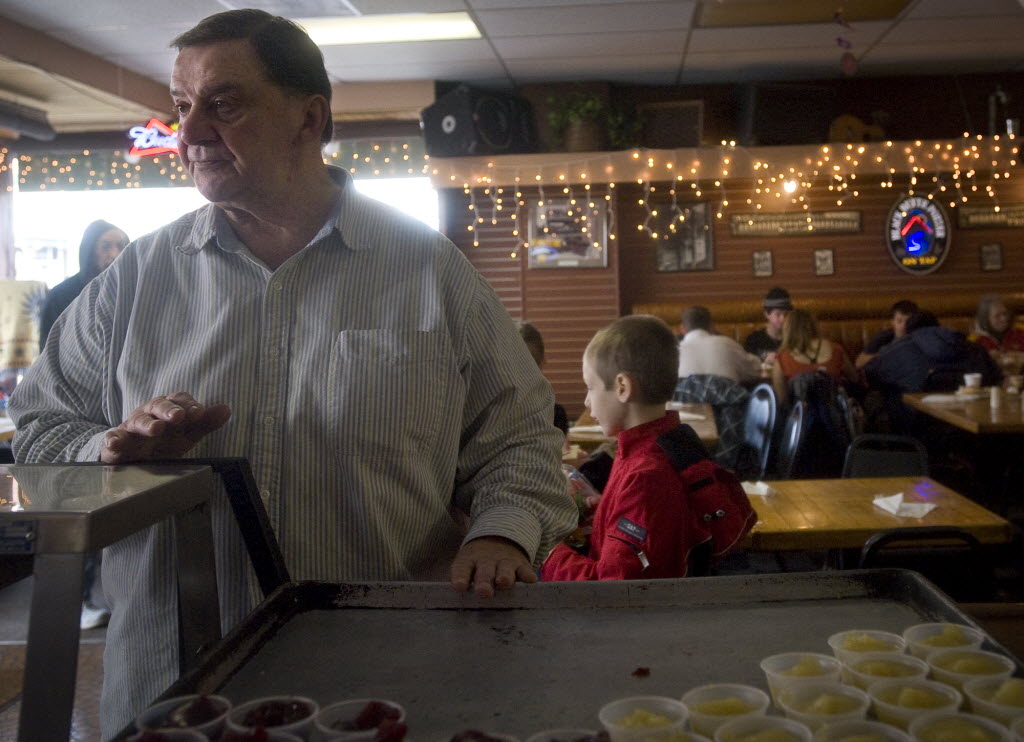Vancouver restaurant and lounge owner Chuck Chronis believes the state’s newly enacted system of private liquor sales will drive up the price of cocktails in Clark County’s already competitive bar scene.
But local bar owner Steve Deans thinks he is better off under the new system, passed in November by voters as Initiative 1183, which took Washington out of the business of selling bottled liquor on June 1. The transition ended the 73-year reign of a state enterprise that promoted, distributed and sold liquor through a string of state-owned stores and other ones that were owned by entrepreneurs who contracted to sell liquor for the state. Under the new law, bars and restaurants — from tiny taverns to concept dining chains — will likely have to monitor the prices offered by distributors instead of taking for granted the across-the-board uniform prices formerly offered at state liquor stores.
Vancouver restaurateur Mark Matthias thinks time will tell whether the new law, which adds a dizzying array of new distributors, will boost the price of a happy hour martini, margarita or Manhattan.
“The good news is you can negotiate with different vendors for product and pricing,” said Matthias, owner of Beaches Restaurant & Bar in Vancouver. But he and other bar owners expect higher prices to replace the introductory offers now being marketed by distributors.
“They (distributors) have to figure in their profit and the extra cost to distribute,” which could increase personnel costs, said Chronis, owner of Chronis’ Restaurant and Lounge at 819 Main St. in downtown Vancouver. He expects prices to increase gradually over the next few days and weeks, unlike the sticker shock revealed to re
tail consumers on Friday, the first day of privatized liquor sales.
Liquor sales in the grocery store surprised buyers who found they were charged the already existing 20.5 percent liquor sales tax and $3.77 per liter tax, which had previously been incorporated into the shelf price, at the checkout counter. In addition, many consumers may not even have realized in advance that two new state fees would be included in the price of a bottle — a wholesalers’ fee of 10 percent and a 17 percent retailers’ fee.
Bar operators have always paid lower sales and per-liter taxes and can now expect a similar reduction. In addition to a 15 percent pretax break on purchases, they only pay 13.77 percent sales tax (compared with 20.5 percent tax on retail purchases) and a tax of $2.44 per liter (compared with $3,77).
And unlike the retail consumers, bars that make liquor purchases from a distributor will be exempt from the 17 percent distribution fee, although the new 10 percent wholesalers’ fee still applies.
“I would imagine those who buy volume will tend to get a better deal,” said Brian Smith, spokesman for the Washington State Liquor Control Board.
The changes could force higher prices on smaller, mom-and-pop bars while giving a break to larger enterprises, said Chronis, who operates a single-owner establishment. “Some of the distributors have a three to five case special (price). But sometimes you don’t want or need certain kinds of liquor and I’m not into warehousing it for them,” he said.
Chronis also said he couldn’t justify tying up his small operation’s extra money — up to $2,000 — to have an added inventory of liquor sitting in the back room. He estimated his hard liquor costs have gone up by at least 15 percent.
The additional cost can be offset elsewhere at other bars, said Deans, the co-owner of downtown Vancouver’s Brickhouse Bar and Grill.
“It’s become much more convenient,” he said. “It’s going to cut back on our labor costs.”
Deans previously scheduled staff to fill out orders and pick up the liquor from state stores, a task now largely overseen by the distribution companies. However, Deans and other bar owners complained they will have to work with more than one distributor, since most do not carry a wide enough variety of items.
Whether the price of a bar beverage will rise is something “we’re all going to know very quickly,” Matthias predicted. “There’s so many people distributing now.”
Some bars that carry small quantities might even gravitate back to the former state-contracted liquor stores to keep plenty of booze and bar supplies on hand, said Shelby Piersol, a liquor merchant whose formerly state-contracted store has now lost the guarantee of its state-assigned sales to local bars and restaurants.
Those sales previously made up about 15 percent of her business, said Piersol, who now operates the store as a privately owned shop.
Under the old state system, Piersol’s store regularly supplied a handful of Washougal businesses.
“We had little taverns and seven or eight restaurants, a golf course and a few pubs,” she said.
Piersol doubts some of those bars will make large orders with the new distributors.
“Some are so tiny, they just need about 15 bottles,” she said.



